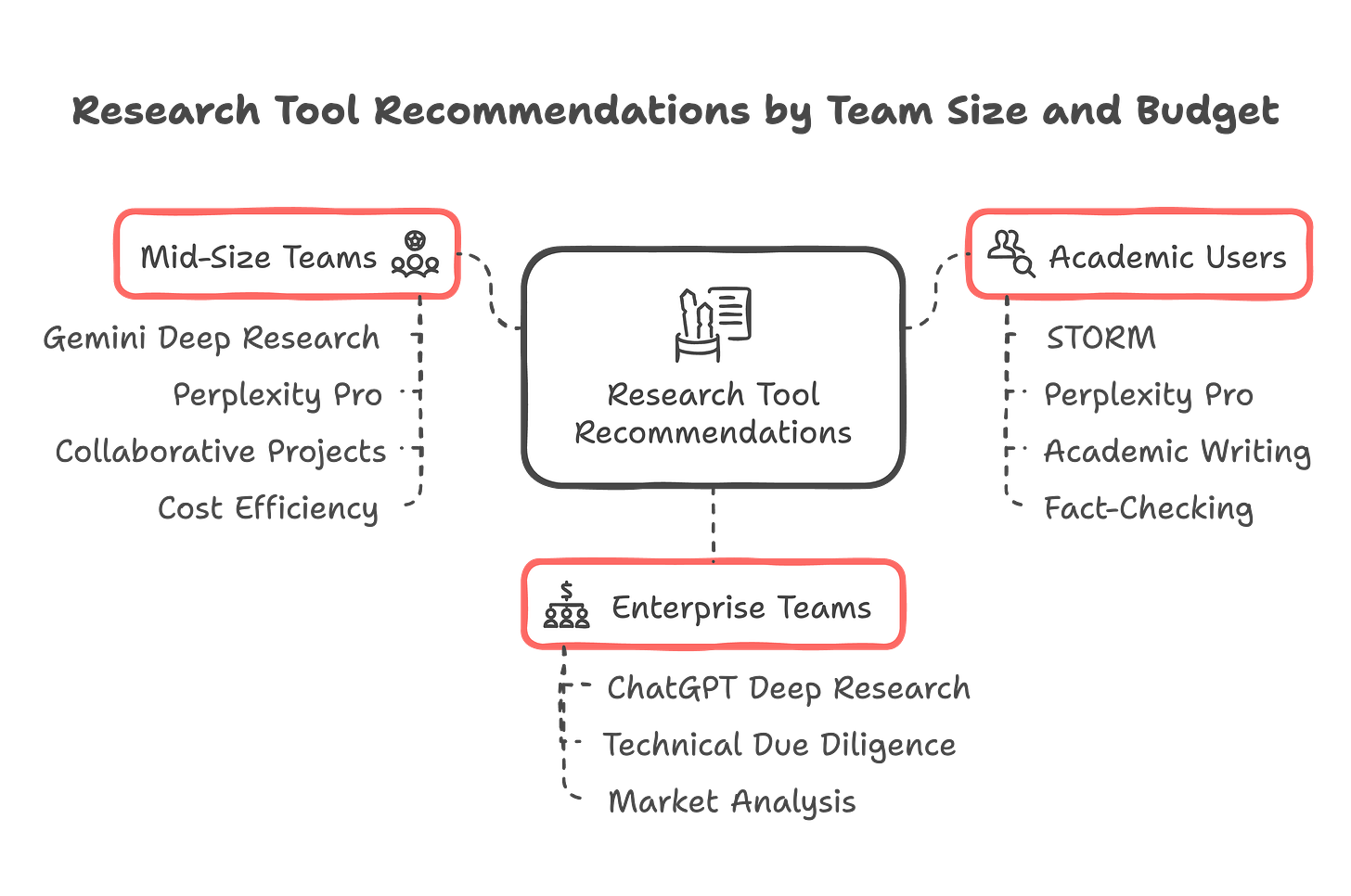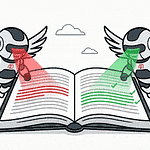Hey Adopter,
OpenAI wants you to spend $200 monthly on their new research tool. But most teams get better results by combining two $20 tools. I know that sounds too good to be true, but stick with me for the next few minutes.
I analyzed every major AI research tool on the market. What I found will save you money and boost your research efficiency. You'll learn how to build a better research stack for $40, pick tools that actually fit your workflow, and avoid the costly mistakes most teams make when choosing AI tools.
My analysis includes clear comparisons backed by performance data, specific recommendations for your budget, and real examples of teams saving over $1,800 monthly. Whether you're planning to upgrade your tools or just want to cut costs, you'll find actionable insights here.
The New Research Arsenal
1. ChatGPT Deep Research ($200/month)
✨ The Premium Player
100 monthly queries ($2 per deep dive)
26.6% accuracy on expert-level tasks (verified benchmark)
Process time: 5-30 minutes per query
Full file support: PDFs, spreadsheets, images
Python integration for data analysis
Comprehensive citations with methodology summaries
The Reality Check: Yes, it's pricey, and those 30-minute processing times aren't for the impatient. But for deep technical analysis? It might just be worth every penny.
2. Google's Gemini Deep Research ($20/month)
🔄 The Workspace Wonder
Parallel research through AI "mini clones"
Seamless Google Workspace integration
Interactive document editing
Specialized market analysis capabilities
Real-time collaboration features
The Fine Print: No file uploads and struggles with paywalled content. Perfect if you live in Google's ecosystem, limiting if you don't.
3. STORM (Free)
📚 The Academic Ace
LaTeX/Markdown export
Academic-style citations
Wikipedia-style report generation
Cost: Absolutely free
Worth Noting: Earlier reports about direct academic database integration were overstated – it's more about academic-style outputs than special database access.
4. Perplexity Pro ($20/month)
⚡ The Speed Demon
300 daily searches
Real-time web updates
Multi-model support (Claude/GPT-4/Sonar)
67% faster than standard ChatGPT
End-to-end encryption
The Trade-off: Jack of all trades, master of none. Great for quick research, less suited for deep analysis.
Performance Showdown
Who Should Buy What?
Enterprise Teams ($1M+ Annual Research Budget)
✓ ChatGPT Deep Research is your play if:
You're doing technical due diligence
Market analysis is your bread and butter
Accuracy matters more than speed
Mid-Size Teams ($100K-$1M Research Budget)
The Optimal Stack:
Gemini Deep Research for collaborative projects
Perplexity Pro for daily research Total cost: $40/month (that's $160 less than Deep Research)
Academic Users
Best Combo:
STORM for academic writing
Perplexity Pro for fact-checking Total cost: Just $20/month
The ROI Reality Check
Before jumping on the $200 Deep Research bandwagon, do this quick math:
Track weekly research hours
Multiply by your hourly rate
Factor in accuracy requirements
Consider collaboration needs
Example:
10 hours/week research at $100/hour = $4,000 monthly
If Deep Research cuts that by 50% = $2,000 saved
Minus $200 subscription = $1,800 monthly benefit
The Bottom Line
ChatGPT Deep Research isn't trying to be everything to everyone – and that's exactly why it might be worth $200 for the right user. For most teams, though, a Perplexity Pro + Gemini Deep Research combo ($40 total) hits the sweet spot of capability and cost.
Think of it this way: You're not just paying for a tool; you're investing in time saved and accuracy gained. Choose based on your specific needs, not the price tag.
Adapt & Create,
Kamil
P.S. Using any of these tools in your workflow? Hit reply with your real-world experience – especially interested in hearing about concrete time savings and ROI calculations.
Sources & Additional Reading:














